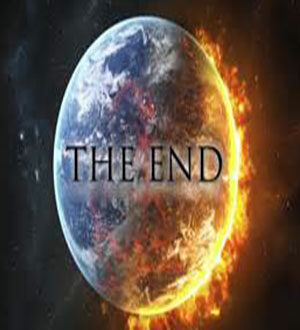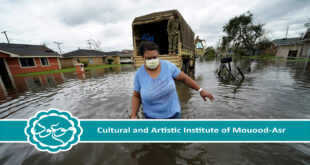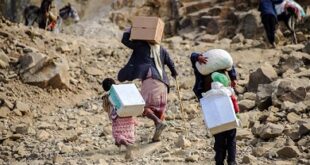Revelation
Most discussions of revelation and apocalypse in contemporary America focus on the Book of Revelation, also known as The Apocalypse of John, the final book of the Christian New Testament. The two terms are synonymous in their original meaning — “revelation” from Latin and “apocalypse” from Greek both mean a lifting of the veil, a disclosure of something hidden from most people, a coming to clarity. What is the nature of this unveiling today? What is being revealed to us?
A reactionary end-times theology turns that particular book of the Bible into the handbook for a death cult, fantasizing about an easy way out. That isn’t the direction I will be heading. Rather than thinking of revelation as divine delivery of a clear message about some fantastic future above, we can think of it as a process that requires tremendous effort on our part about our very real struggles on this planet. That notion of revelation doesn’t offer a one-way ticket to a better place, but reminds us that there are no tickets available to any other place; we humans live and die on this planet, and we have a lot of work to do if, as a species, we want to keep living.
That process begins with an honest analysis of where we stand. There is a growing realization that we have disrupted natural forces in ways we cannot control and do not fully understand. We need not adopt an end-times theology to recognize that on our current trajectory, there will come a point when the ecosphere cannot sustain human life as we know it. As Bill McKibben puts it, “The world hasn’t ended, but the world as we know it has — even if we don’t quite know it yet.” [5]
McKibben, the first popular writer to alert the world to the threat of climate change, argues that humans have so dramatically changed the planet’s ecosystems that we should rename the Earth, call it Eaarth:
The planet on which our civilization evolved no longer exists. The stability that produced that civilization has vanished; epic changes have begun. We may, with commitment and luck, yet be able to maintain a planet that will sustain some kind of civilization, but it won’t be the same planet, and hence it won’t be the same civilization. The earth that we knew — the only earth that we ever knew — is gone. [6]
If McKibben is accurate — and I think the evidence clearly supports his assessment — then we can’t pretend all that’s needed is tinkering with existing systems to fix a few environmental problems; massive changes in how we live are required, what McKibben characterizes as a new kind of civilization. No matter where any one of us sits in the social and economic hierarchies, there is no escape from the dislocations of such changes. Money and power might insulate some from the most wrenching consequences of these shifts, but there is no escape. We do not live in stable societies and no longer live on a stable planet. We may feel safe and secure in specific places at specific times, but it’s hard to believe in any safety and security in a collective sense.
This is a revelation not of a coming rapture but of a deepening rupture. The end times are not coming, they are unfolding now.
Redemption
Just as revelation can be about more than explosions during the end times, redemption can be understood as about more than a savior’s blood washing away our sin. In a world in which so many decent people have been psychologically and theologically abused by being called “sinner” by jealous and judgmental scolds, sin and redemption are tricky terms. But we shouldn’t give up on the concept of sin, for we are in fact all sinners — we all do things that fall short of the principles on which we claim to base our lives. Everyone I know has at some point lied to avoid accountability, failed to offer help to someone in need, taken more than their fair share. Given that we all sin, we all should seek redemption, understood as the struggle to come back into right relation with those we have injured. If we are to live up to our own moral standards, we must deepen our understanding of sin and its causes so that we can understand the path to redemption.
For Christians, sin traditionally has been marked as original and individual — we are born with it, and we can deal with it through an individual profession of faith. In some sense, of course, sin is obviously original. At some point in our lives we all do things that violate our own principles, which suggests the capacity to do nasty things it is a part of normal human psychology. Equally obvious is that even though we live interdependently and our actions are conditioned by how we are socialized, we are distinct moral agents and we make choices. Responsibility for those choices must in part be ours as individuals.
But an individual focus isn’t going to solve our most pressing problems, which is why it is crucial to focus on the sins we commit that are created, not original, and solutions that are collective, not individual. These sins, which do much greater damage, are the result of — we might say, created by — political, economic, and social systems. Those systems create war and poverty, discrimination and oppression, not simply through the freely chosen actions of individuals but because of the nature of these systems of empire and capitalism, rooted in white supremacy and patriarchy. Humans’ ordinary capacity to sin is intensified, reaching a different order of magnitude, and responsibility for the resulting sins is shared.
There is a politics to sin, and therefore there has to be a politics to redemption. That desire to return to right relation with others in our personal lives is not enough; collectively we have to struggle for the same thing, which requires us to always be working to dismantle those hierarchical systems that define our lives. Within hierarchy, right relation is impossible; assertions of dominance and concentrations of power create domination and abuses of power. That includes the most abusive of all hierarchies: The human claim to a right to dominate everything else. Our most important struggle for redemption concerns our most profound sin: Our willingness to destroy the larger living world of which we are a part.
The first step in redemption is to not turn away from that lifting of the veil, to face honestly what we have done, to contest the culture’s delusions wherever possible. Then we can face what we must do to enhance justice and build sustainable living arrangements.
What does this kind of redemption look like in practice? I think we should proceed along two basic tracks. First, we should commit some of our energy to the familiar movements that focus on the question of justice in this world, such as anti-war struggles. We redeem ourselves — especially those of us with privilege that is rooted in that injustice — through that commitment to fighting empire, capitalism, white supremacy, and patriarchy.
But I also think there is important work to be done in experiments to prepare for what will come in this new future we can’t yet describe in detail. Whatever the limits of our predictive capacity, we can be pretty sure we will need ways of organizing ourselves to help us live in a world with less energy and fewer material goods. We have to all develop the skills needed for that world (such as gardening with fewer inputs, food preparation and storage, and basic tinkering), and we will need to recover a deep sense of community that has disappeared from many of our lives. McKibben puts this in terms of a new scale for our work:
“The project we’re now undertaking — maintenance, graceful decline, hunkering down, holding on against the storm — requires a different scale. Instead of continents and vast nations, we need to think about states, about town, about neighborhoods, about blocks. … We need to scale back, to go to ground. We need to take what wealth we have left and figure out how we’re going to use it, not to spin the wheel one more time but to slow the wheel down. … We need, as it were, to trade in the big house for something that suits our circumstances on this new Eaarth. We need to feel our vulnerability.” [7]

 Mouood Mouood English Edition
Mouood Mouood English Edition



